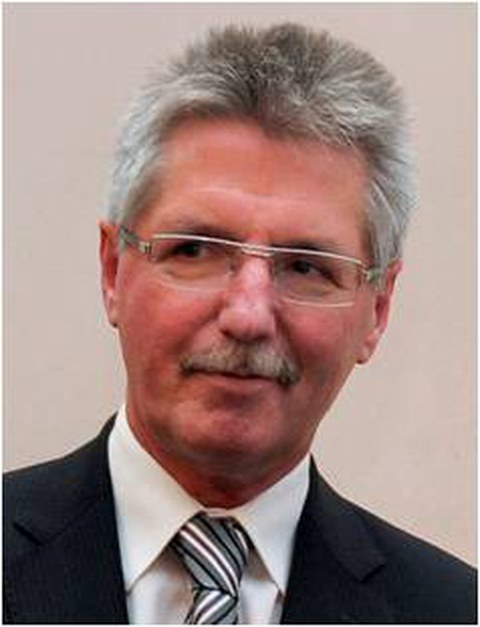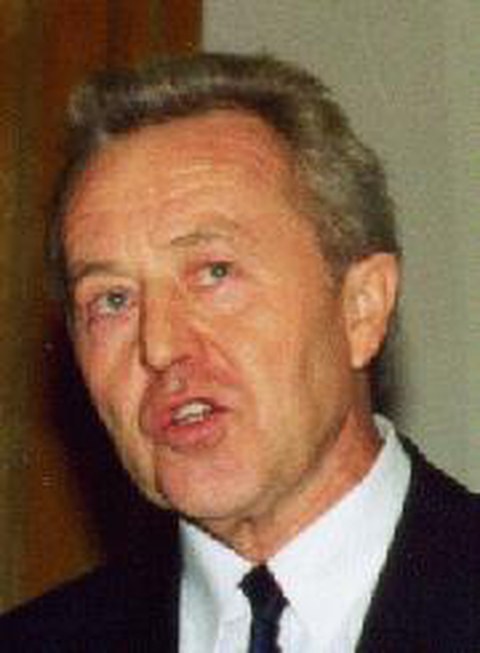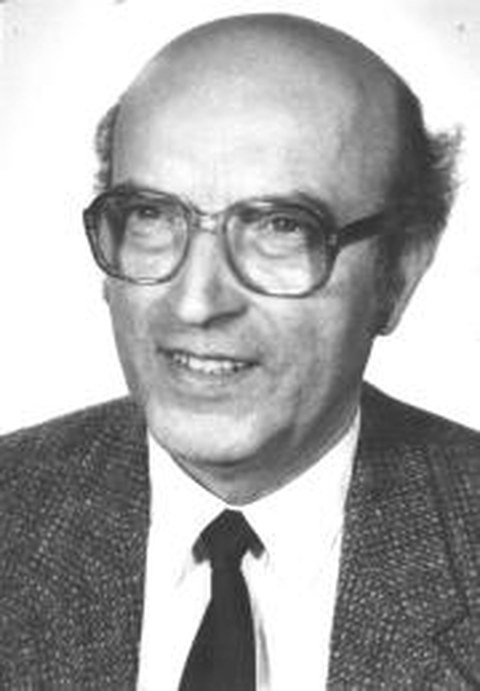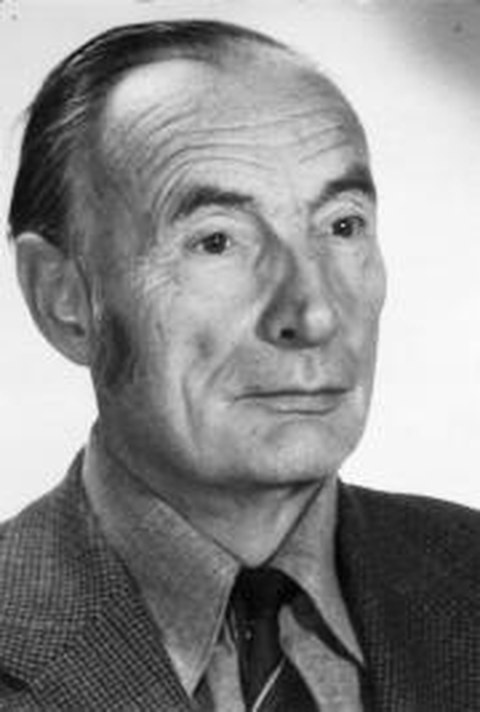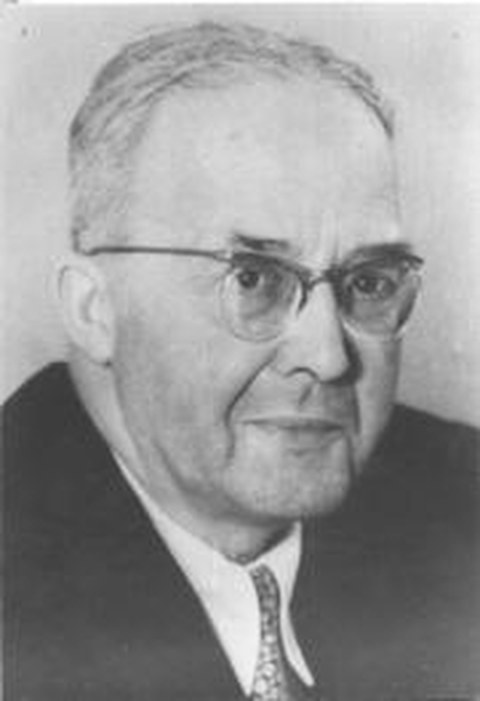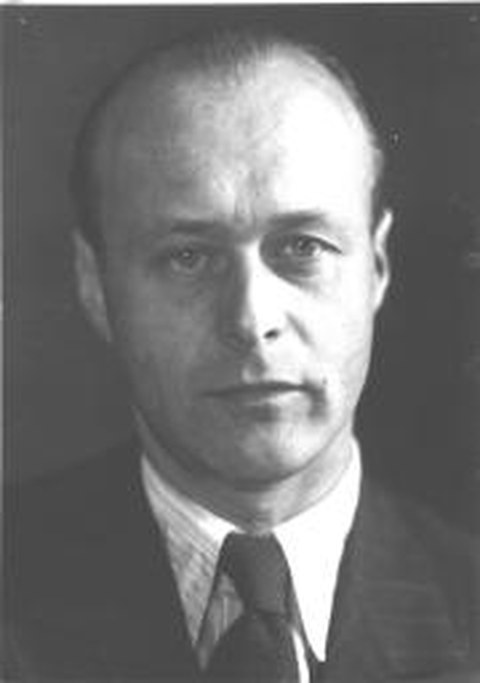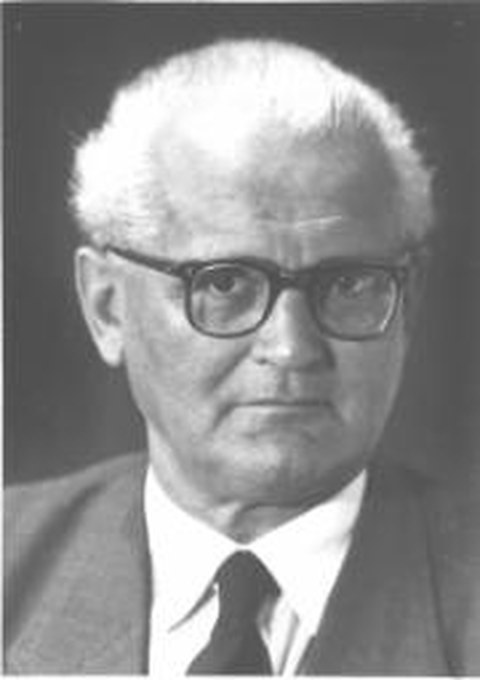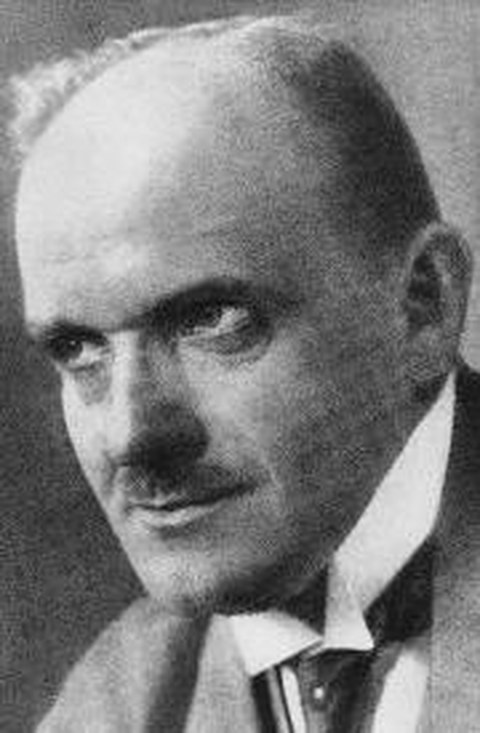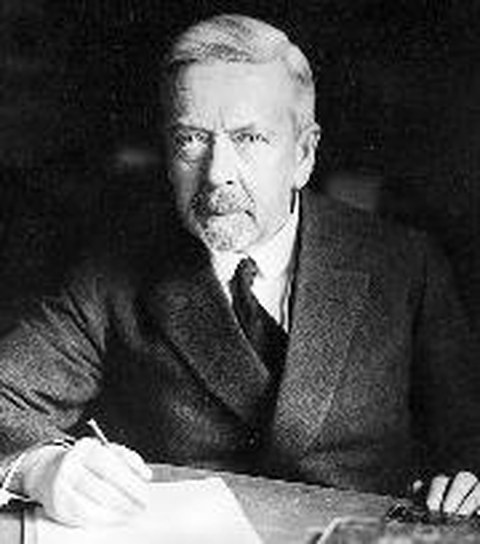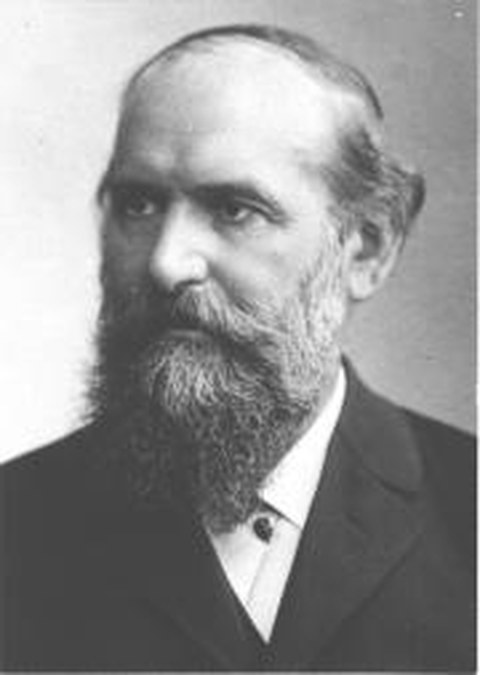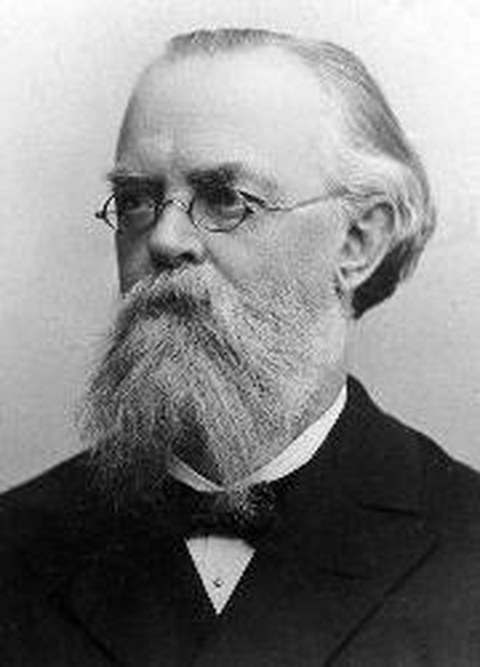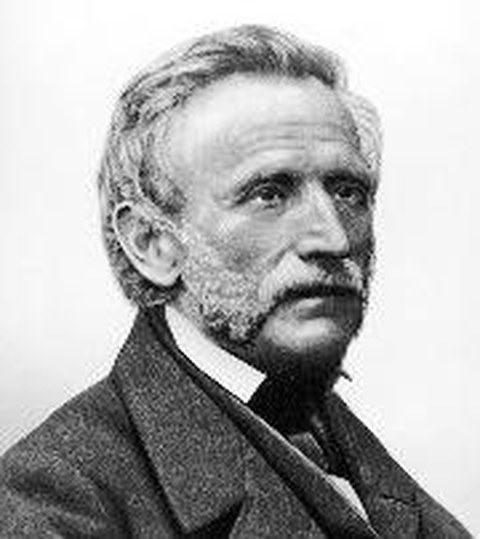History
History and development
Thermal Power Machinery and Plants
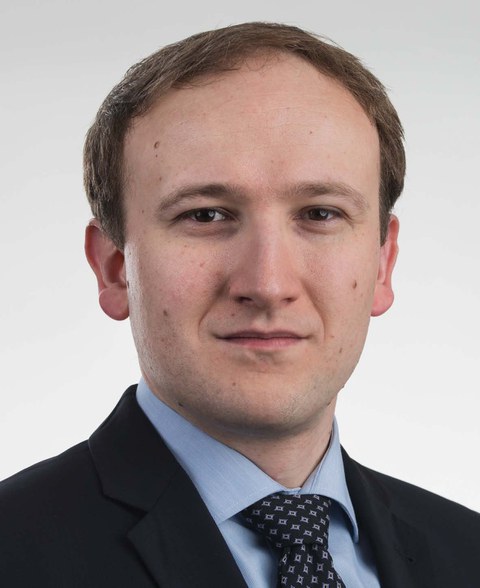
Dr.-Ing. Andreas Jäger
2022
At this year's Faculty Day on Oct. 15, 2022, Dr. Andreas Jäger was awarded the Innovation in Teaching Award.
Admission of Dr. Jäger as a member of the Turbo Working Group (Coordination office: DLR)
Member of the conference committee in the European sCO2 Conference
On 3 March 2022 Andreas Jäger is appointed chairman of Thermal Power Machinery and Plants.
2018
Foundation suCOO-Lab
The suCOO-Lab was intended to establish the sCO2 research field in thermal energy technology at TU Dresden. The main focus of the Lab was to establish collaborations with partners from research and industry. With the development of a test facility, the suCOO-Lab provided the basis for initial experimental work.
2010
Honorary doctorate
On 6 December 2010, Dipl.-Ing. Manfred Freimark was awarded the honorary doctorate in engineering (Dr.-Ing. E. h.) in recognition of his outstanding contribution to science and technology, knowledge transfer and communication in the field of gas turbine power plant technology.
Commissioning of the
-
teaching and experimental power plant for energy technology - Prof. Gampe assumes the lead as Director of the Centre for Energy Technology
-
expanded hot gas test rig (overlay, creeping, low and high cyclic fatigue),
-
mini sample test system for static and dynamic material testing up to 1300 °C
2009
European Centre for Emerging Materials and Processes (Lead: Institute of Lightweight Engineering and Polymer Technology, Prof. Hufenbach): Participation in two projects
2007
Start of research activities in the field of solar hybrid power plant processes
2006
Inclusion of the chair into the Rolls-Royce University Technology Centre (UTC) "Lightweight Structures and Materials", managed by the Institute of Lightweight Engineering and Polymer Technology (Prof. Hufenbach) and associated with the Chair of Turbo Machinery and Jet propulsion (Prof. Vogeler).
Joint tasks connect: Merging of the Institute for Energy Machines and Machine Laboratory and the Institute for Energy Technology under the name "Institute for Energy Technology" (led by Prof. Gampe 2006-2008), beginning of the development of the Centre for Energy Technology (Zentrum für Energietechnik - ZET).
The planning of the teaching and experimental power plant based on a half-open integrated gas-steam process and the acquisition of 600-kW gas turbine is carried out by the chair.
Extension of the research profile with regard to investigation and development of technology for novel power plant processes
2005
Taking over of the scientific coordination of the development of the Centre for Energy Technology by Prof. Gampe
Transfer of two staff members of the Chair of Pumps, Compressors and Apparatuses, discontinued after the retirement of Prof. Will, and expansion of the teaching offers by the courses "Pumps", "Fluid Conveying Systems" as well as "Apparatus Construction"
2003
Admission of Prof. Gampe as a permanent guest in the Working Group "Gas turbines" of VGB PowerTech
2001
On 1 January 2001 Uwe Gampe is appointed full professor for Thermal Power Machinery and Plants.
2000
Retirement of Prof. Sörgel and renaming of the chair into Chair of Thermal Power Machinery and Plants.
1997
The heat stress test rig is replaced by the natural gas-fired high temperature test equipment with working temperatures up to 1100 °C.
On the 7 May 1997 Prof. Sörgel is elected Dean of the Faculty of Mechanical Science and Engineering.
1992
The chair receives two more IBM RS/6000 workstations for teaching and research, and the students' construction laboratory is expanded into a PC lab. Research on erosion corrosion, stress of steam turbine casings, cooled engine components and the crack behaviour of cyclic thermally stressed components. The research focuses on long-term, third-party-funded research contracts on the thermal fatigue of modern high-temperature components, the shape optimisation of thermo-mechanically loaded structures and the cooling of hot gas leading turbine components.
Tutorial notes and plant factsheets 'Basics of turbomachinery ' and 'Steam and gas turbines'.
1992
With effect from the 1 June 1992 Gerhard Sörgel is appointed university professor and head of the Chair for Steam and Gas Turbines. Prof. Schramm retires on 31 December 1992.
The teaching continues to focus on basics of turbomachines and steam and gas turbines, and in research the topics of design, construction and operation of steam and gas turbines and thermal fatigue, durability and cooling of high temperature components are in the foreground.
The foci in teaching are still the foundations of turbomachinery and steam and gas turbines. In addition, there is the Development of Aircraft Gas Turbines, Use of Computers for Energy Machines, Environmental Problems in Power Plants and Power Plants II for Industrial Engineers as well as the Basic Principles of Mechanical Engineering.
1990
Dissolution of the divisions and establishment of institutes. The working group of Prof. Schramm becomes the Professorship for Steam and Gas Turbines at the Institute for Energy Machines and Machine Laboratory. The following courses are held:
-
Fundamentals of Turbomachinery for the disciplines Power Plant Engineering and Nuclear Energy
-
Design problems of turbomachinery for the disciplines Fluid Mechanics / Thermodynamics and Thermal and Hydraulic Engineering
-
Steam and Gas Turbines for the disciplines Thermal and Hydraulic Engineering, Power Plant Engineering and Nuclear Energy
Research focuses on the thermal fatigue of modern high-temperature components as a continuation of investigations on temperature fields and thermal stresses.
1979
After the retirement of Prof. Schilg, Prof. Günter Schramm is appointed as full professor and assumes the management of the working group Steam and Gas Turbines. Prof. Schramm is also Director of the Section Energy Conversion, from 1983 to 1990.
Start of basic research in the field of temperature fields and thermal stresses of turbine components:
-
Construction of the thermal stress test rig and theoretical and experimental investigations, assisted by Prof. Schilg.
-
Research on erosion corrosion, vibration diagnostics and power plant processes.
-
Introduction of computing technology into the teaching, and equipment of the construction lab with personal computers.
-
Tutorial and lecture notes 'Design Principles of Turbomachinery'
-
Book: Kosmowski, Schramm: Turbomaschinen [Turbomachinery]
1978
Appointment of Günter Schramm as honorary professor for steam and gas turbines.
1971
The working group of Prof. Schilg is assigned under the name "AG Dampf- und Gasturbinen" [working group Steam and Gas Turbines] to the scientific field Thermal and Hydraulic Engineering (Prof. Kleinert) as part of the Energy Conversion Division. Establishment of a students' construction office.
Research on shaft seals, the vibration behaviour of rotors and prognostic power plant processes.
Tutorial and lecture notes 'Design Principles of Turbomachinery', Tutorial Notes 'Construction of Pipelines'.
Book: Schilg, u. a.: Turbomaschinen im Kraftwerk - Konstruktion und Betrieb [Turbomachinery in power plants – Contruction and operation]
1968
Dissolution of the institutes and establishment of divisions.
The working group of Prof. Schilg is assigned under the name "AG Strömungstechnik/Konstruktion" [working group Fluid Mechanics / Construction] to the scientific field Fluid Mechanics (Prof. Albring) as part of the Thermal and Mechanical Energy Conversion Division.
Elaboration of the new course 'Construction Principles of Turbomachinery' and 'Construction of Pipelines'.
Research on the construction of turbomachinery and computer-assisted design.
1963
Appointment of Gerhard Schilg as full professor.
The institutes run by Prof. Elsner are grouped together to form the Institute for Thermodynamics and Energy Economics, where an independent chair for steam turbines is set up for Prof. Schilg.
Lecture Steam turbines. Student assignments on the design and construction of condensation steam turbines from 12 to 300 MW.
Tutorial notes and design kit 'Steam Turbines'.
Research on splitting losses in steam turbine stages.
05.10.1961
Renaming of TH [Technische Hochschule - Technical College] into Technische Universität Dresden.
September 1961
After the sudden passing away of Prof. Faltin in June 1961, Gerhard Schilg becomes part-time lecturer for steam and gas turbines. The director of the Institute of Energy Economics, Prof. Elsner, takes over the provisional management of the Institute of Thermodynamics and Thermal Flow Machines.
1960
Prof. Faltin calls for increased constructive training in the field of steam and gas turbines and proposes to the Faculty of Mechanical Engineering his successor: Gerhard Schilg - the chief designer of WUMAG Görlitz.
1957
Completion of the new institute building "Merkelbau", conceived by Prof. Faltin.
1954
In the machine laboratory, the chair for special machines is set up, including the teaching content of combustion turbines.
1949
Prof. Hans Faltin holds the lectures on Technical Thermodynamics, Steam and Gas Turbines, Centrifugal Compressors and Thermal Measurement Methods.
Research: Development and construction of a test rig for the investigation of shaft seals and a test stand for the investigation of random steam turbine blading.
Tutorial notes and construction documents 'Steam and Gas Turbines'.
1949
New appointment of the abandoned Mollier Institute by the establishment of the Institute of Thermodynamics and Thermal Flow Machines and the appointment of Hans Faltin as director and holder of the professorship with the same title. The machine laboratory is taken over by Manfred Oehmichen.
18 September 1946
Reopening of Technische Hochschule Dresden. During the first months, it is subject to the Soviet military command. The de-nazification reduces the number of professors from 79 to 26.
21 October 1946
Starting-up of teaching with 453 students. In addition to the Faculty of Education and Forestry, there is the Faculty of Municipal Economy. The Department of Mechanical Engineering and the Chair of Heat Technology and Heat Economy are managed by Prof. Walther Pauer, who also takes care of the almost completely destroyed machine laboratory. Shortly after the reopening of THD, Prof. Pauer is delegated into the Soviet Union, until 1952.
1945
80 % of Technische Hochschule Dresden are destroyed.
1940
The previous departments are given the name Faculty, whereby the Faculty of Mechanical Engineering is composed of the Departments for Mechanical Engineering and Electrical Engineering.
1939
After the death of Prof. Nägels division of the institute into the four professorships:
Thermodynamics (Mehlig),
Steam boilers and Heat Economy (Pauer),
Flow machines (Hahn) and
Piston machines (List).
1936
Commissioning of the steam turbine test rig in the machine laboratory.
1935
After the death of Mollier, Nägel takes over the management of the institute.
1932
After the death of Prof. Lewicki, Ernst Sörensen is appointed to the Professorship for Flow Machines. He publishes the 'Einheitsdiagramme für Dampfturbinen' [Unit diagrammes for steam turbines].
1920
Appointment of Walther Pauer, who takes over the Professorship of Power and Heat Economy in 1922, and Friedrich Merkel, who is appointed as associate professor for Machine Research in 1928.
1908
After the death of Leonidas Lewicki, the two machine laboratories are united. Ernst Lewicki becomes director of the Hydraulic and Steam Turbine Division and professor of flow machines. Selected works: Anwendung hoher Überhitzung beim Betrieb von Dampfturbinen, Einteilung der Dampfturbinen, Fortschritte auf dem Gebiet des Dampfturbinenbaus [Application of high overheating in the operation of steam turbines, classification of steam turbines, progress in the field of steam turbine construction].
1905
Construction of the Zeunerbau and – according to plans by Prof. Lewicki – of the new machine laboratory in George-Bähr-Straße.
1903
Prof. Mollier engages the talented experimenter Adolph Nägel for the machine laboratory B for thermodynamics, gas and refrigeration machines, under his management.
1897
Richard Mollier succeeds Prof. Zeuner as professor of theoretical machine theory. With the introduction of the term 'heat content' and the 'new diagrams on technical heat theory' he creates the foundations for the development of thermal engineering. Under his overall management, the topic of turbines is further pursued in the machine laboratory.
In that year, Franz Stolze obtains a patent for a gas turbine.
1896
Foundation of the machine laboratory by Prof. Zeuner.
Leonidas Lewicki is appointed to the Professorship for Flow Machines and takes over the management of the machine laboratory A for steam and water machines.
1890
Renaming in Königlich-Sächsische Technische Hochschule [Royal Saxon Technical College]. Prof. Zeuner introduces the elected rectorate.
1883
Introduction of the "Diplomprüfung" [diploma examination]
Zeuner among others holds lectures in 'Technical Thermodynamics' and 'Theory of Turbines' as a professor of mechanics and theoretical machine theory. Presentation of the basics of steam turbines. Works on reaction turbines.
1875
New building at Bismarckplatz. Renaming in Königliches Polytechnikum [Royal Polytechnic Institute]. Under the leadership of Gustav Zeuner, there is an expansion of basic education by humanist subjects, economics and administrative sciences, general law and others.
1851
Renaming into Königlich Polytechnische Schule [Royal Polytechnic School]. In division A machine theory is taught and practical machine courses are conducted.
Management: Ambrosius Hülse. Recognition as a university.
1846
New construction in Antonsplatz
20.02.1828
Opening of Technische Bildungsanstalt [Technical Training Center] at Brühlscher Garten in Dresden: 'Eligible students are aged between 14 and 18 years, have literacy, reading and writing skills, knowledge of the four common calculations and have passed the church confirmation.' The four-year course is carried out, among other things, in engineering sciences of architecture, higher mathematics and machine theory.
Management: Andreas Schubert.



